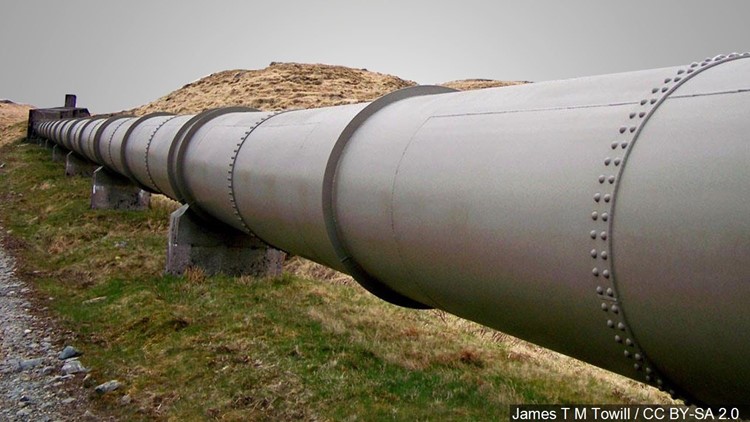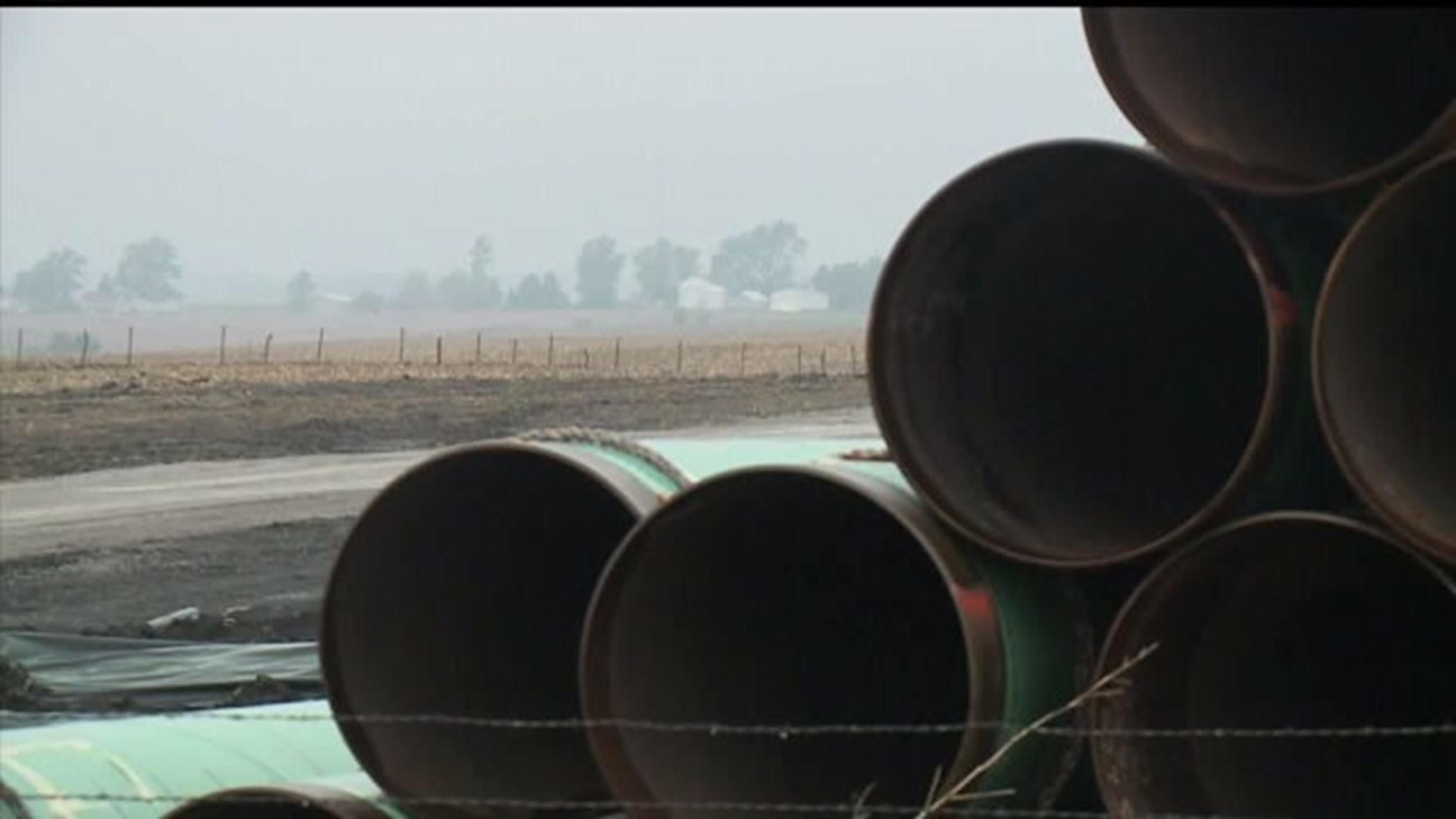WASHINGTON (AP) — A new study by the University of Michigan has found that a single oil and gas field in the western United States is largely responsible for a global uptick of the air pollutant ethane.
The research team found that fossil fuel production at the Bakken Formation located in North Dakota and Montana is emitting roughly 2 percent of the ethane detected in the Earth’s atmosphere. Ethane reacts with sunlight to form ozone, which triggers respiratory problems.
“Two percent might not sound like a lot, but the emissions we observed in this single region are 10 to 100 times larger than reported in inventories. They directly impact air quality across North America. And they’re sufficient to explain much of the global shift in ethane concentrations,” said Eric Kort to the Michigan News.
Kort is a U-M assistant professor of climate and space sciences and engineering, and first author of the study published in Geophysical Research Letters.
The study solves what had been a scientific mystery after a mountaintop sensor in Europe registered an increase of ethane in 2010, following decades of declines. Searching for the source, an aircraft from the National Oceanic and Atmospheric Administration sampled air from over the Bakken region in May 2014. Those measurements showed ethane emissions far higher than previously reported.
The Bakken oil fields provide the oil that will be transported via the Dakota Access Pipeline. Construction is expected to begin later this year.
Bakken Pipeline
On April 8, 2016, the Iowa Utilities Board issued a permit to Dakota Access, the company in charge of the "Bakken pipeline" that will carry about a half-million barrels of oil per day from the Bakken Formation in North Dakota to Illinois. The Iowa board approved the project in early March. The $3.78 project will stretch across 18 counties in Iowa, spanning 1,300 parcels of land and 346 miles under Iowa farmland.
Land owners haven't all been on board with the pipeline because the project allows Dakota Access to force hundreds of unwilling landowners into easements using eminent domain laws. The project has already inspired at least 3,700 letters of protest.
The Iowa Utilities Board insists the good at comes from the project outweighs the bad as the project will create jobs and provide a safe way to transport the crude oil.
However, concerns of oil spills under the ground and contaminating ground water has several concerned - especially the Standing Rock Sioux tribe in North Dakota. The members of the tribe say the pipeline threatens their drinking water and they will fight the pipeline "every step of the way." The tribe has gathered members to camp out in protest of the pipeline.
The tribe isn't the only group concerned.
The approval has already spurred a lawsuit against the Iowa Utilities Board by the Northwest Iowa Landowners Association and individual landowners for the use of eminent domain. The suit says the company does not quality as a utility and should not have the ability to force eminent domain upon the farm owners. The lawsuit was filed in Polk County on April 8, the same day the permit was issued to Dakota Access.
On Thursday, April 28, 2016 the Iowa Utilities Board denied motions filed by landowners and the Sierra Club Iowa Chapter to reconsider the board's "Final Decision and Order" that was made March 10. The Board also ordered a complaint proceeding be established for a landowner and established procedures to address any additional complaints regarding the activities of Dakota Access.
The Associated Press contributed to this story.




